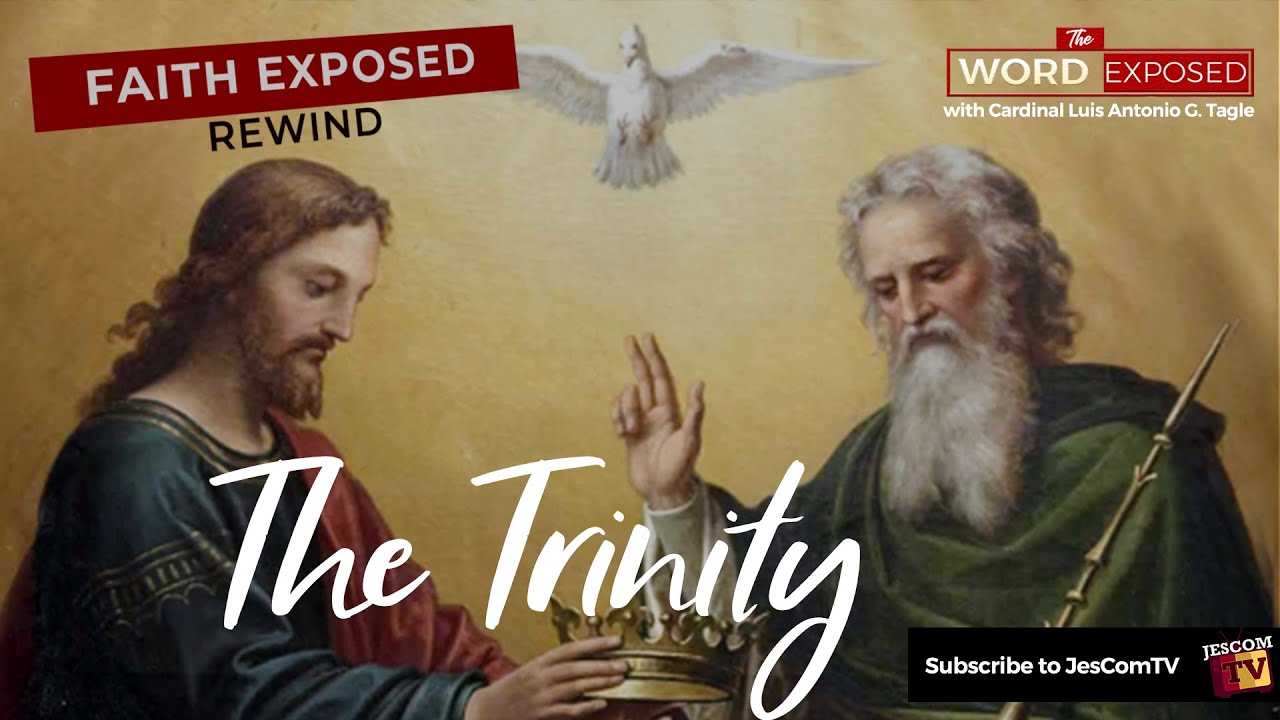Mysteries of the Church: Trinity
Summary
TLDRIn this episode of "Mysteries of the Church," host Carolyn Morrison delves into the doctrine of the Holy Trinity, explaining how God exists as three persons—Father, Son, and Holy Spirit—within one divine essence. The program explores the biblical foundations of this belief, tracing its development from the Old Testament through the early Church's councils. Morrison emphasizes the equality of the three persons and their distinct roles, illustrating how Jesus' teachings reveal the nature of God. The episode concludes by highlighting the significance of the Holy Spirit as God's presence in believers' lives, underscoring the ongoing mystery of the Trinity.
Takeaways
- 😀 The Holy Trinity doctrine teaches that God exists as three persons: the Father, the Son (Jesus Christ), and the Holy Spirit, yet is one God.
- 😀 Understanding the term 'person' in the context of the Trinity differs from human individuals, as all persons share the same essence and nature.
- 😀 The belief in the Trinity is a central doctrine of Christianity, emphasizing the equality of all three persons in power and majesty.
- 😀 The Old Testament hints at the Trinity, recognizing God as Creator, Wisdom, and Spirit, laying the groundwork for later Christian understanding.
- 😀 Jesus' declaration as the Son of God in the New Testament clarifies the belief in the Trinity and the roles of each person.
- 😀 The concept of the Trinity was affirmed over centuries, particularly at the Councils of Nicaea and Constantinople, which addressed early controversies regarding Jesus' divinity and the Holy Spirit.
- 😀 The Trinity is not a hierarchy; each person of the Trinity is fully God, equal in divinity and importance.
- 😀 The relationship between the Father and the Son highlights an intimate bond, mirroring the unity shared among all three persons of the Trinity.
- 😀 The Holy Spirit is described as the divine will of God, inspiring scripture and being an active presence in believers' lives.
- 😀 Understanding the Trinity is acknowledged as a profound mystery that transcends human comprehension, requiring faith rather than full rational understanding.
Q & A
What is the fundamental belief of Christianity regarding the Holy Trinity?
-Christianity holds the belief in the Holy Trinity, which states that God exists as three persons—God the Father, God the Son (Jesus Christ), and God the Holy Spirit—who are all one and the same.
How does the doctrine of the Holy Trinity differentiate between the concept of 'person' and human individuals?
-In the context of the Trinity, 'person' refers to the distinct identities of the Father, Son, and Holy Spirit, who share the same essence and nature, unlike human individuals who possess independent thoughts and free will.
What is the significance of the phrase 'Lex orandi Lex credendi' in relation to the Trinity?
-The phrase 'Lex orandi Lex credendi,' meaning 'the law of prayer is the law of faith,' highlights that the faith of Catholic Christians is shaped not only by scripture but also by the church's traditions and sacramental life, where the understanding of the Trinity is lived out.
How did the early church come to understand the relationship between God the Father, Son, and Holy Spirit?
-The early church's understanding developed over several centuries, beginning with debates in the second and third centuries about the nature of Jesus and culminating in affirmations at the Council of Nicaea, which established the consubstantial nature of Jesus with the Father, and later affirmations of the Holy Spirit's divinity.
What role did the Old Testament play in the formation of the belief in the Trinity?
-The Old Testament introduces the concept of God as Creator and hints at a multi-faceted nature of God through wisdom and the spirit of God, setting the foundation for the later revelation of the Trinity in the New Testament.
How is Jesus Christ described in relation to God in Christian theology?
-In Christian theology, Jesus Christ is described as the Incarnation of the second person of the Trinity, fully divine and fully human, sharing the same divine essence as God the Father and God the Holy Spirit.
What is the significance of the Holy Spirit in the Trinity?
-The Holy Spirit is the third person of the Trinity, representing the bond of love between the Father and the Son and is understood as the Divine will of God dwelling within believers, inspiring scripture and the church's mission.
What are some representations of the Holy Spirit in scripture and art?
-The Holy Spirit is often represented as a dove in the gospels, particularly during Jesus' baptism, and is depicted in art as a radiant dove hovering above God the Father and Jesus, symbolizing the spirit's presence and power.
How does the concept of monotheism in Judaism relate to Christianity?
-Judaism's belief in one God established the foundation for Christianity, which views Jesus as the fulfillment of Jewish prophecy, introducing the concept of a triune God while maintaining the core belief in one divine essence.
What does the episode suggest about the limitations of human understanding of the Trinity?
-The episode suggests that while Christians can strive to understand the Trinity through faith and scripture, it ultimately remains a profound mystery that transcends human comprehension, inviting believers to embrace its complexities.
Outlines

此内容仅限付费用户访问。 请升级后访问。
立即升级Mindmap

此内容仅限付费用户访问。 请升级后访问。
立即升级Keywords

此内容仅限付费用户访问。 请升级后访问。
立即升级Highlights

此内容仅限付费用户访问。 请升级后访问。
立即升级Transcripts

此内容仅限付费用户访问。 请升级后访问。
立即升级浏览更多相关视频

The Trinity explained in 5 minutes

Holy Trinity explained in 3 minutes!

THE TRINITY | Faith Exposed with Cardinal Tagle

The Holy Trinity|Video Catechism of the Catholic Church Part.6

"TRITUNGGAL" (by Pdt Marietta) #video pembelajaran kampus

Kok bisa Tuhan yang satu memiliki tiga pribadi? Apa maksudnya Tritunggal?
5.0 / 5 (0 votes)
